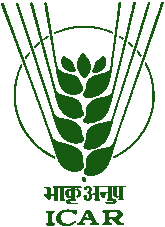Interface Meeting on Coconut and Arecanut Farming
Coconut and arecanut farming need new directions in Goa
Coconut is a quintessential of Goans’ life. Kulaagar is synonym for arecanut based farming in Goa. These crops not only provide economic support to the farmers but even provide abundant employment opportunities throughout the year especially in the hinterlands of rural Goa. Considering the current issues pertaining to sustainable farming of these two crops arising primarily due to scarce and expensive labour, higher cost of production and biotic stress factors, it was thought prudent to deliberate the issues meticulously bringing together the farmers, scientists, and developmental agencies on a common platform. Thus “Scientist-Extension Personnel- Farmers Interface Meeting on Scientific Coconut And Arecanut Farming” was organized by ICAR Research Complex for Goa, Old Goa and KVK (North Goa) in collaboration with Central Plantation Crops Research Institute (CPCRI), Kasargod on 7th November, 2013. About 150 participants comprising of progressive farmers from all over the state of Goa, Extension officials from the line department and representatives from Zuari Industries ltd, Goa and Sesa Goa Ltd, Goa actively participated in the interface programme. While delivering the introductory remarks, Dr. Narendra Pratap Singh, Director, ICAR Complex for Goa aptly emphasized the need for such an interface meeting to facilitate the effective transfer of improved production technology to the needy farming community. On this occasion, Shri Prajapati Tufani, Director, Directorate of Agriculture, Government of Goa highlighted the practical problems such as difficulties in harvesting, disease and insect pest problems faced by the farmers in coconut and arecanut farming in Goa. On the other hand, Dr. G. V. Thomas, Director, Central Plantation Crop Research Institute, Kasargod recounted the potential of these two crops, need to promote tender water and product diversification and intercropping benefits for sustainable farming. In his inaugural address, Shri D P Dwivedi IAS, Secretary Agriculture, Government of Goa critically noted the ever increasing demand due to increased consumption in non coconut growing areas of the country and hence the need for meeting the same. He also emphasized the need for nurturing the recent trend noticed in Himachal Pradesh, of returning of educated youth from management studies to the rural area for applying the management skills in farm business.
Resource persons from CPCRI, Kasargod appraised the gathering about the improved varieties and hybrids of coconut and arecanut available in the country for different regions, various intercropping options, scientific crop production and protection practices and their timely operations for sustainable farming. Extension officials and Farmers raised the issues like constraints in supply of genuine planting material in large quantities especially of improved hybrids developed of late by the research institutes and agricultural universities, reliability of private nursery companies, efficacy of an array of products floated in the market by the private companies, need for mechanization for harvesting, biological control of insect pests through release of parasitoids, etc. Enthusiastic farmers shared their experiences in the management of monkey-menace and other rodents. Unequivocal demand for the dwarf or medium statured varieties/ hybrids was coherently expressed by the farming community, which they felt, would decide the futuristic opportunities for coconut and arecanut farming considering the non-availability of palm climbers and traditional harvesters. Interface meeting noted the coherent role of research institutes / universities and line departments in facilitating the farmers for obtaining the needed planting material, latest technologies, etc. The forum also noted the need for imparting the training to the enterprising famers and farmer-groups to take up the production of hybrid saplings under the technical guidance of the local research institutes. The renewed curiosity about the prospects of cocoa cultivation in the state was also evinced by the farmers which was discussed in the light of earlier bitter experience of the cocoa growers. It was noted that under the changing scenario of the prospects of this crop and its world wide demand for cocoa beans, prospects intercropping improved varieties of cocoa in the existing coconut gardens and new areca gardens in Goa may be explored.















